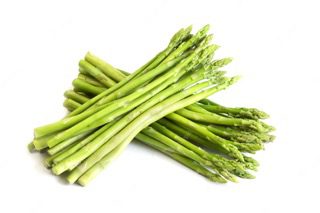

Dogs can safely consume asparagus, which is a low-fat and low-sugar vegetable that is packed with nutrients and dietary fiber. However, it is important to note that the asparagus fern, which is inedible, is toxic to dogs and can cause allergic dermatitis and stomach problems.
Asparagus is a nutritious food for dogs, as it is low in fat and sugar while being rich in vitamins C, E, and K, as well as copper, folate, and antioxidants. It also contains high levels of dietary fiber, which can aid in digestion and promote overall health.
While asparagus is generally safe for dogs to eat, there are some risks to be aware of. Eating large amounts of asparagus can cause vomiting, flatulence, diarrhea, and kidney irritation. The berries of the asparagus plant are mildly poisonous, and raw asparagus can pose a choking hazard due to its tough texture.
To prepare asparagus for dogs, it is recommended to boil or steam it before serving. This helps to break down the fibrous cells and make it easier for dogs to chew and digest. Cut the asparagus into bite-sized pieces and serve in moderation to avoid any potential health issues.
Asparagus, also known as sparrow grass, is a nutritious vegetable for dogs that is both low in fat and sugar while being rich in essential vitamins and minerals. The vegetable has originated from the Mediterranean region and is widely used in European and Asian cuisines. Asparagus is beneficial for dogs' overall health as it is loaded with vitamins C, E, and K, copper, folate, antioxidants and dietary fiber, which can promote digestion. However, it is important to avoid the asparagus fern, as it is inedible and can cause stomach problems. Raw asparagus can be hard for dogs to chew, so boiling or steaming the vegetable is recommended. It is important to serve asparagus in moderation and bite-sized pieces, as too much can cause digestive issues such as vomiting, flatulence, diarrhea, and kidney irritation.
Although asparagus is healthy for dogs, there are some risks involved. The berries of the asparagus plant are mildly poisonous, and the tough texture can pose a choking hazard. It is important to consult with a veterinarian before incorporating any new food into your dog's diet. Asparagus is generally affordable and easy to access for pet owners.
If you're looking for alternative vegetables to include in your dog's diet, green beans and broccoli are both great options. Green beans are rich in fiber and vitamins A, C, and K, while broccoli is a great source of antioxidants and vitamin C. Both vegetables are safe for dogs to consume in moderation.
Have you tried feeding asparagus to your furry friend? How did they like it? Don't forget to consult with your veterinarian before introducing any new food to their diet. Sending your pet lots of love and tail wags!